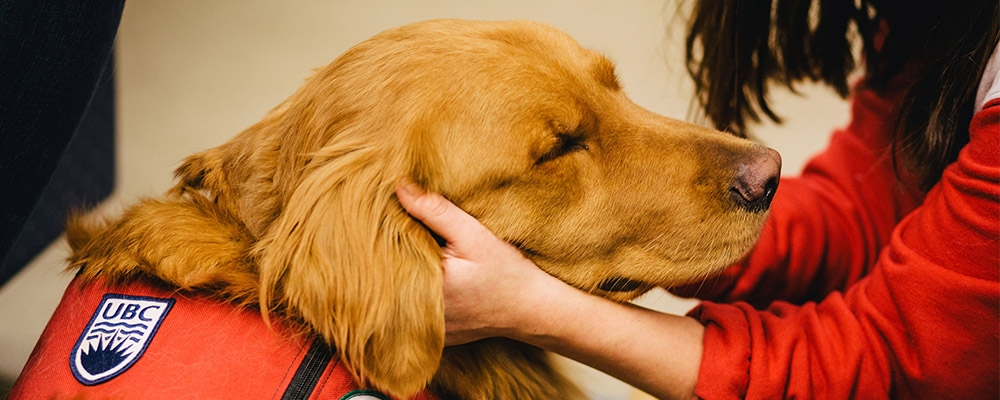Drop-in

B.A.R.K. offers regular ‘Drop-in” sessions (typically on Friday afternoons) for the university community. These sessions take place in EME 1123 from 4:30 p.m. to 6:00 p.m.
February 2
February 9
February 16
March 8
March 15
March 22
About B.A.R.K. Drop-in
A typical session includes 14 to 17 dogs and their handlers in a flexible, informal setting. If you’re looking to spend time with therapy dogs, reduce your stress, and meet others from UBCO, consider attending a drop-in session!
On average 101 UBC students visit the B.A.R.K. lab each Friday and interact with therapy dogs and handlers for approximately 30 to 45 minutes per visit.
Please note that these are not all hypoallergenic dogs and those with severe allergies should avoid coming near these areas.
2019/2020 by the numbers
13
Sessions offered
101
Average participants per session
1317
Total number of visits to Drop-in
Frequently Asked Questions
These sessions are completely free. If you would like to donate to B.A.R.K. to help us continue running our programs, you are welcome to do so on our website under the ‘Donate’ tab.
You do not need to book an appointment to attend one of our drop-in sessions. Simply drop-in!
Drop-in sessions are open to all of our UBCO community including students, faculty and staff.
You are welcome to attend however many sessions you would like – and you can stay at each session for however long you like. There are no limits to your participation.
Sessions will be held on the following Friday evenings from 4:30-6pm in EME 1123:
September 10
October 15
October 22
October 29
November 5
November 19
November 26
Upon arrival, you will out a pre-session “temperature check” which asks attendees to indicate on a thermometer how stressed they are. Once checked in, visitors can then join any one of our B.A.R.K. dogs and stay with them for as long as they choose. Once ready to leave, visitors are asked to complete a post-session “temperature check”.
Review our volunteer as a student page for details.
Our new dog intake assessments typically take place once a year. More information about the process can be found on the dog intake assessment page.